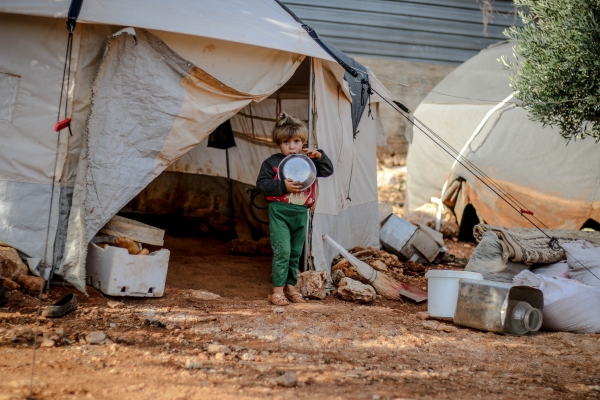According to the World Food Programme (WFP), more than half of the Syrian population, some 12.1 million people, are now food insecure. Inflation has led to food prices that are 13 times higher than they were ten years ago. The WFP reports that food prices in Syria have risen by 532 per cent between 2020 and 2022 and are still rising. Today, an average monthly wage does not cover more than a quarter of a family's food needs.
The Russian-Ukrainian conflict has had a major impact on Syria's hunger crisis. In the northwest region, food prices have risen by 86% as a direct result of the war in Ukraine, with shortages of sunflower oil, sugar and flour. High fuel and food prices and damaged infrastructure have meant that Syria has lost its food self-sufficiency, becoming the sixth most food insecure country in the world and dependent on humanitarian aid - Syrian wheat production has fallen by 75 per cent.
To make matters worse, a 7.8 magnitude earthquake struck southern Turkey and north-western Syria on 6 February, killing more than 59,000 people. WFP reportedly provided food assistance to 1.7 million earthquake survivors in Syria, adding to the 5.5 million people it was already feeding with monthly rations. Child and maternal malnutrition are the worst affected, with 3.7 million children now facing a worsening crisis as the earthquake exacerbates the effects of the ongoing war.
Together with the Food and Agriculture Organization (FAO), WFP is working to strengthen agricultural and irrigation practices. Some 900 farmers across the country have received fodder seeds, veterinary support and fertiliser. WFP also plans to irrigate 28,000 hectares of land. The aim is to create new economic opportunities and increase food self-sufficiency.
However, WFP Executive Director David Beasley warns that the organisation's current funding crisis will reduce the number of beneficiaries by 45 percent, leaving 2.5 million people without adequate food assistance. "If we don't address the humanitarian crisis in Syria, things will get worse than we can imagine. Another wave of mass migration like the one that swept across Europe in 2015 - is that what the international community wants?" said Beasley.
To read more, visit:
https://www.mercycorps.org/research-resources/russian-ukrainian-conflict-food-security-syria
by Elena Ricci







